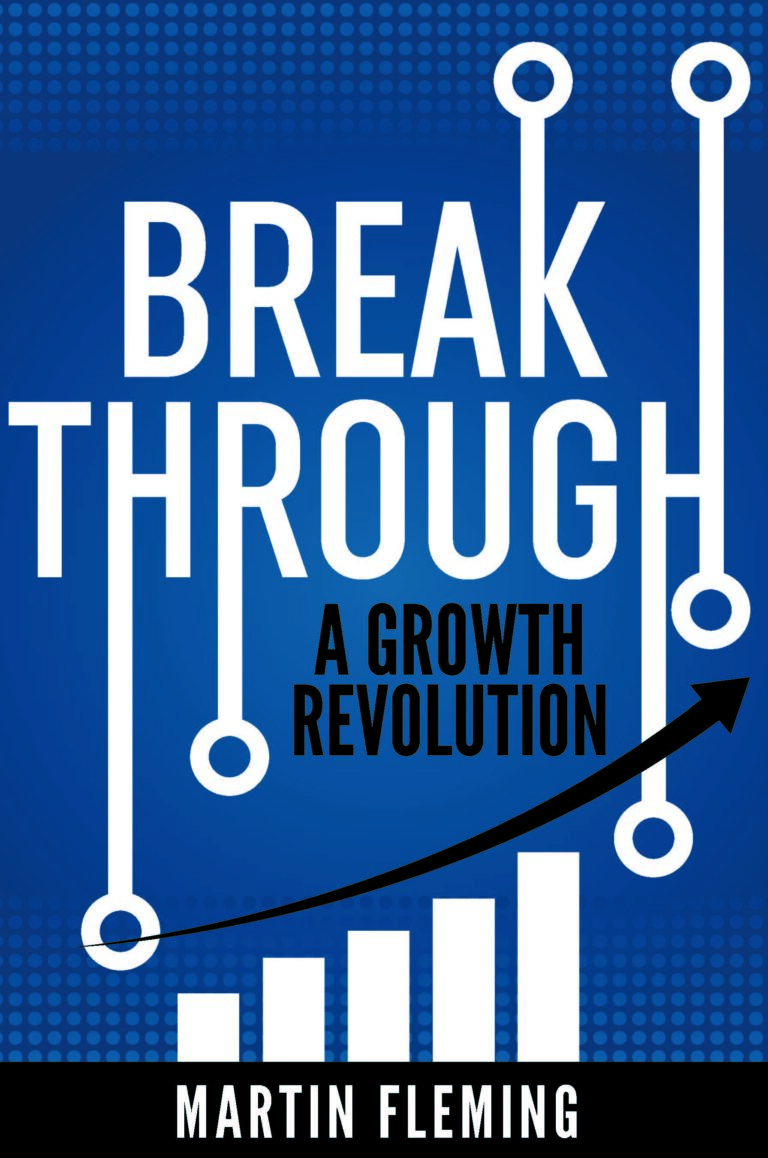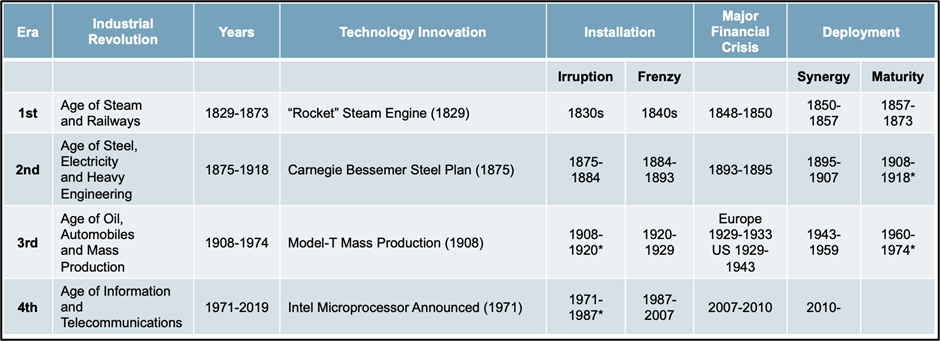Growth and fairness agenda key to driving productivity growth and long-term prosperity
The economic destruction and dislocation wrought by the COVID-19 pandemic and other world events has created conditions that are ripe for finally realising the full potential of the Fourth Industrial Revolution, according to TPI Research Fellow Martin Fleming.
In his new book Breakthrough: A Growth Revolution, Fleming argues that the psychological pressures resulting from COVID and a potential recession could drive more change in the global economy than we’ve seen in more than half a century.
In particular, worker-led trends such as the ‘great resignation’ and ‘quiet quitting’ are creating a pressing need for government and business leaders to dramatically re-think their strategies for driving growth and productivity.
“Workers are taking into their own hands actions necessary for them to move into job roles that better serve their personal needs,” Fleming notes. “They want to find roles that offer better career opportunities, better work-life balance, and better compensation. Over the past 12-18 months, employees have been more active and more aggressive in driving change and transformation as a result of the psychological pressures coming out of the pandemic.”
Industrial revolutions: how the past influences the future
In Breakthrough, Fleming, IBM’s former Chief Economist and Chief Analytics Officer, looks at the underlying economics of industrial revolutions to understand what is necessary to realise stronger economic and productivity growth in the period ahead.
Table is from Martin Fleming’s paper ‘Productivity Growth and Capital Deepening in the Fourth Industrial Revolution’, TPI Working Paper 010, September 2021.
His framework for economic change is:
- Understanding where we are at any point in time over decades-long industrial revolutions compared with previous revolutions
- Knowing the conditions necessary for stronger growth by understanding the economic logic of industrial revolution
- Implementing a ‘Growth and Fairness Agenda’ of actions and policies necessary for the realisation of stronger and more equitable growth
At this stage in the Fourth Industrial Revolution (which started with the advent of the microprocessor in 1971), the world has broadly adopted electronics, semiconductors, and information technology. However, Fleming argues that business has yet to realise the full benefits of the age of information and telecommunications.
“As much progress as we’ve seen over the past 50 years, the applications adopted by business — human resource systems, inventory systems, and so on – remain relatively simple and straightforward,” Fleming says. “Sure, the way we operate and manage offices is different today than it used to be — but the real question we need to answer is: ‘What are the much larger benefits of technology that might be available in the period ahead?’”
The AI revolution
In Breakthrough, Fleming posits that the great untapped technology is Artificial Intelligence (AI). “My hypothesis is that in order to realize much greater benefits we need to see the technology further simplify to enable knowledge diffusion and absorptive capacity,” Fleming explains. “Smaller firms need to be able to take advantage of the capabilities available to huge corporations and governments. That takes time — it doesn’t happen overnight.”
Learning to work differently and defining and attaining new skills could take decades, but the economic benefits could be realised much earlier.
“The most recent US data suggests that perhaps 10 percent of firms have adopted meaningful AI applications,” he says. “We’re talking about a process that will continue for between 15 and 30 years before being fully deployed.”
Business transformation is the key to realising the productivity benefits enabled by the Fourth Industrial Revolution.
“If we automate a broken system, you have an automated broken system,” Fleming says. “So, we need to transform how we do business and how we work as we deploy AI.
“Ironically, the technology we have today is the best we have ever had. At the same time, that also makes it the worst technology we’re ever going to have,” Fleming observes. “We’re going to continue to see gains and benefits ahead, but the question remains just how quickly they will be realised. How will the generation entering the workforce transform the way work is done to incorporate the benefits of technology and see gains in living standards?”
Growth and Fairness Agenda: a new social contract
Fleming proposes a roadmap aimed at harnessing the productivity benefits of the Fourth Industrial Revolution through what he calls a “Growth and Fairness Agenda” comprising:
- increased investment in small and medium-sized enterprises,
- artificial intelligence (AI) and analytics tools that are easier-to-use and more widely adopted,
- government incentives that support workforce education and training, along with tax provisions that encourage investment in both tangible and intangible capital, and
- deeper engagement between business executives and their workforces, including a willingness to embrace new skills requirements and ways of working.
Fleming uses historic success stories to show how the embrace of ‘advanced technologies’ in industrial revolutions was also accompanied by substantial labour market transformation and periods of growth.

He uses the Treaty of Detroit from the Third Industrial Revolution as a key example of government, business and labour coming together to realize the full benefits of new technologies.
Following World War II, the United Auto Workers union agreed with General Motors to allow management to set business strategy and establish workplace rules in return for lifelong pensions and greater health care benefits being made a permanent part of labour contracts. President Truman also intervened in the negotiations.
“We had workers, business and government come together to redefine the worker-employee relationship,” Fleming says. “That then spread across many different industries and contributed to an enormous increase in growth and productivity.
“I talk about a new social contract in which workers, firms and governments come together, just like they did back in Detroit,” Fleming concludes. “Focus on what needs to happen, what has to happen to see the more positive outcomes.”
Breakthrough: A Growth Revolution is available in digital and paperback formats from Amazon and Blackwells. You can follow Martin Fleming on Twitter and LinkedIn.




